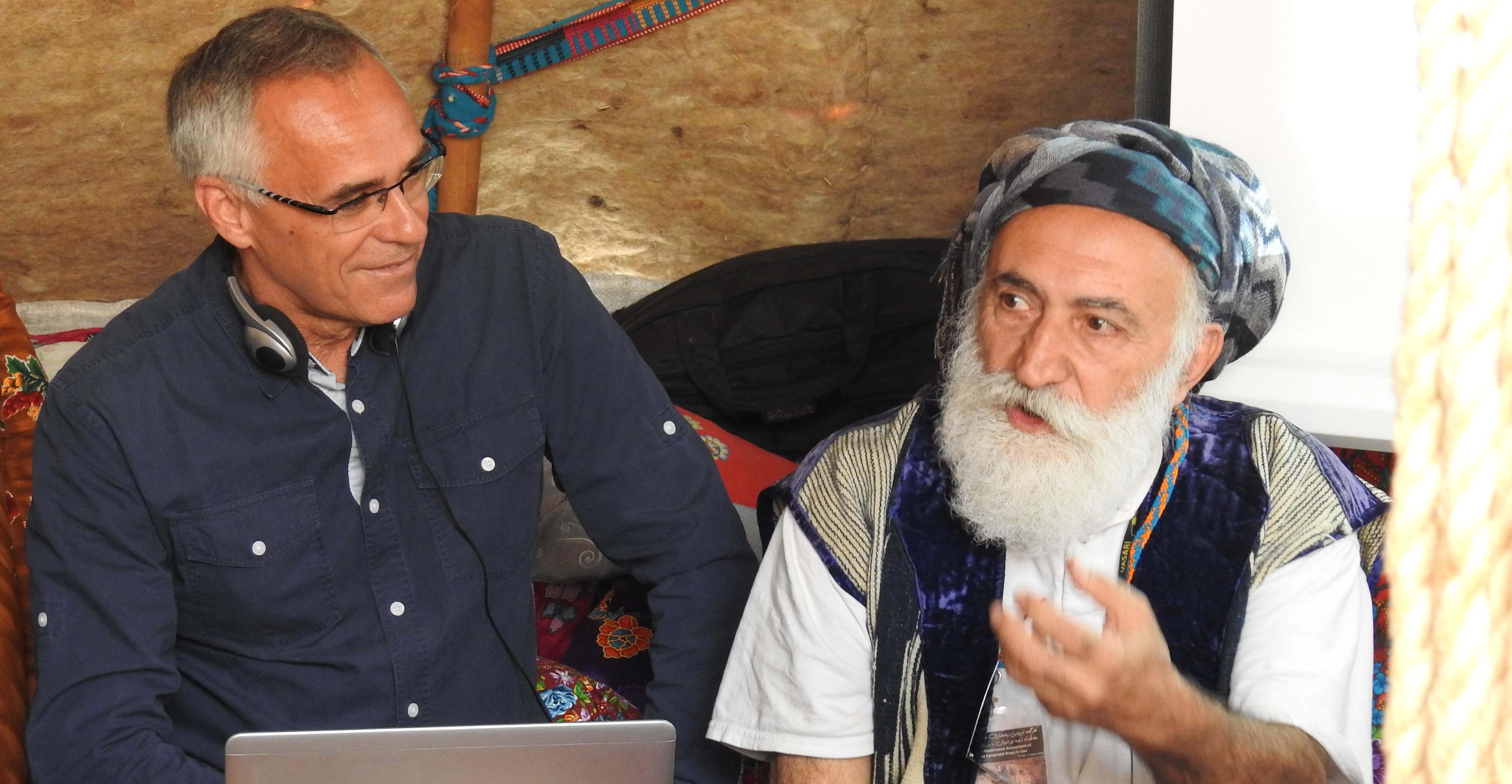First published on 08/03/2016, and last updated on 06/27/2017
31 July-3 August 2016 – Sareyn District, Eastern Azerbaijan, Iran
As Iran strives to reach the Aichi Targets by 2020, ICCA-GSI and NGO Cenesta (SGP grantee) organized a workshop on the governance assessment and enhancement of Protected and Conserved Areas (PCAs). This is the first workshop of its kind in Iran and was facilitated in an enabling environment to include Indigenous Peoples and Community-Conserved Territories and Areas (ICCAs) within the official government-recognized PCA system. The workshop also came in an opportune time as Iran updates its National Biodiversity Strategies and Action Plan (NBSAP-II) to the Convention of Biological Diversity (CBD).
Please download the overall report here.
In Iran, two organizations play a key role in the management and governance of official government-recognized PCAs. Namely, these are the Department of the Environment of Iran (DOE) and the Forest, Rangeland and Watershed Organisation (FRWO). The DOE is fully in-charge of official protected areas (PAs) in Iran, which are divided into four categories: (i.) National Park (highest conservation status); (ii.) National Monuments; (iii.) Wildlife Refuges; and (iv.) Protected Landscapes and Seascapes. The FRWO is the main custodian of approximately 52% of natural ecosystems including rangelands and watersheds. Much of the territories of the migrating pastoralists lie within the lands managed by the FRWO. In some cases, the territories of indigenous peoples (IPs) and local communities (LCs) overlap with official government-recognized PCAs.
Workshop Participation and Activities:
The 4-day workshop was held in a thriving ICCA located in North Western Iran – the Takle Tribesummering grounds of the Shahsevan Tribal Confederacy. Over 50 multilevel stakeholders joined the organizers and hosting tribe and actively participated in round- table discussions, presentations, mapping exercises as well as in traditional games and customs of the Shahsevan Tribal Confederacy. Namely, the participants included representatives from tribal confederacies and local communities across Iran (Qashqai, Bakhtiari, Abolhassani tribal confederacies, Toroud Independent Tribe, Baluch Peoples, Qeshm Island and Assalouyeh Arab communities), International Union for Conservation of Nature (IUCN), Iran’s Department of Sustainable Development and Environment, NGOs (Persian Wildlife Heritage Foundation, Children of Water, Tanin Tabiat Tirgan, Damoon and Kanoon Sabz Fars) and the Forests, Rangelands and Watershed Management Organisation.
The workshop’s discussion points included: (i.) the importance of diverse governance systems, Promise of Sydney; (ii.) Conservation Timeline in Iran; (iii.) IPs/LCs and CSOs explaining their efforts and roles in conservation to government authorities; (iv.) ‘Problem Tree’ for stakeholder groups including challenges on recognition, respect for traditional knowledge, land tenure rights, etc.; (v.) Alliance of stakeholder groups including future vision/s and action plans to achieve the agreed upon vision/s; (vi.) IUCN Matrix categorization; and (vii.)NBSAP-II.
In addition to the enhanced capacities of all engaged partners, NGO Cenesta shared over a decades’ experience in working with Iran’s indigenous nomadic tribes and local communities. In particular, they presented a range of best practices on a large variety of sustainable and effective governance systems, which covers about 25% of Iran’s land area.
Outcomes: The most important outcome of this workshop was the valuable alliance built between IPs/LCs and government representatives.This alliance will serve in the future endeavours relating to the integration and adoption of Governance Type D (governance by indigenous peoples and local communities) into the official government-recognized PCA systems of Iran. Additionally, the governance assessment and mapping exercises in the workshop were successful in demonstrating the opinions and suggestions of IPs/LCs, which were collected and later integrated within Iran’s NBSAP-II. The participants’ awareness was also increased with the IUCN Matrix of PCAs as well as the traditions and customs of the Shahsevan Tribal Confederacy.
In addition to the support of ICCA-GSI key partners, the success of this workshop was a result of the collaboration of many sub-regional, national and local partners. These include NGO Cenesta, the European Commission, Department of the Environment of Iran, the Forest, Rangeland and Watershed Organisation, Ramsar Regional Centre for Central and West Asia, Succow Foundation from Germany and UNINOMAD and the indigenous peoples and local communities themselves.
Article taken from here!
